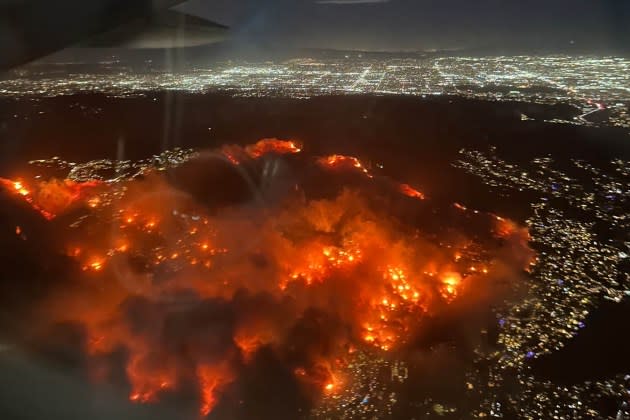When did you last read an article that left you feeling good about the world? It is rare to see a news headline with a positive message. The first headlines to pop up on my newsfeed read- “Deadly ‘bomb cyclone’ torments US north-west with strong winds and rain”, “U.S. vetoes U.N. Security Council’s Gaza ceasefire resolution”, and “Trump wants to use the military for mass deportations.” These headlines aren’t what you would want to read first thing when you open your phone. There is constantly negative news; when that’s all we read, it becomes what we think of the world. When you’re constantly told that the climate is getting worse, war is incessant, and U.S. armies might be militarized against the people, you won’t have a positive outlook on our world. However, there is so much good all around us that we cannot see.
The headlines aren’t telling us about stories of real human compassion, they’re not covering new climate innovations, not showing us that there is hope. BBC news monitoring archives show that the attitude of the news has been on a downward spiral since 1945. This leads you to wonder- were the “good old days” really so good, or did we just focus on the good more?
According to the European Environmental Agency, carbon emissions in the European Union dropped a record amount within the last year, falling by 8%. Israel and Palestine are working towards a ceasefire deal. AI breakthroughs have recently made it possible to identify and diagnose cancer far more efficiently than we’ve been able to before.
The world is not a darker place than it has been in the past, reports just have not been as positive as before. This raises the question- is most news bad, or is the news that we pay attention to more negative? Are we passing by the positive headlines, simply unaware of them?
Our computerized worlds are specifically designed to draw us in, get us to click that link, and read that story. According to the Los Angeles Times, we have a 30% stronger physiological response to negative news than any positive news we see. This bias towards the negative shows that it’s not necessarily the publishers’ fault- they just know what is more likely to be read. It’s not necessarily the journalists’ perspective that the world is going downhill, they just know that more people will read an article about pressing world events than everyday acts of humanity. Due to this, 90% of news shared is negative. It’s not that the world is spiraling downwards, it’s just that the world’s struggles have been amplified dramatically by the media.
Journalism is arguably one of the most important fields in society. Even if negative news isn’t the nicest to read, we still need to read it. We need to be informed to function as members of society. It’s so important to cover pressing issues in society, like climate change, political policy, and wars going on across the globe. Although reading that kind of news isn’t fun, we must inform ourselves about what is happening around us.
The constant onslaught of negative news not only makes you see the world as darker than it is, but it is a leading cause of depression and anxiety. This especially impacts teenagers and young adults. However, nearly half of people report they receive at least part of their news coverage from social media. Clickbait and dramatism of world events are even more prevalent within the world of social media than in the news. Many concerns arise with the new commonality of doom scrolling and quick access to information that isn’t necessarily true. There is a strong correlation between the amount of news received via social media and symptoms of depression and anxiety. The prevalence of pessimism in the news is a kind of epidemic within society- people are becoming more dejected every time they read the news, leading them to stop reading the news at all.
There are two different ways that people can respond to the stream of despondency- they can either continue to read the news at the expense of their mental health or save their mental health but become completely unaware of the world they’re living in. Neither option is good for society. Which is better, having an oblivious but happy nation or a depressed nation that is aware of the world around them? With this in mind, there is no real way to move forward. We cannot change what the newsprints and we cannot make the world a perfect place, but we can decide how we respond to it.
Choosing ignorance is never the answer. Instead, we have to educate ourselves while still not overloading ourselves with the realities of the world. The media has become incredibly oversaturated, and “fake news” and deep fakes make it so much harder to determine what is real and what is not. Regardless of all the noise around us, our world is a beautiful, beautiful place. Every day, there are so many overlooked instances of human kindness, compassion, and creativity. Life is beautiful, and to spend it fixated on the darkness in the world would be to miss out on so much beauty around us. Instead of constantly consuming negative news, we must learn to seek out the light.



